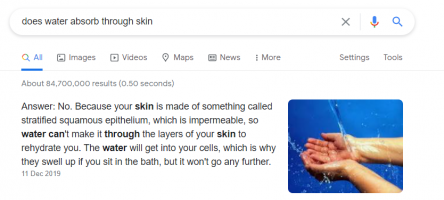MunenMuso
Member
- Joined
- Mar 6, 2021
- Messages
- 11
I've been compounding my own hair loss topicals for quite a few years now.
Even though I create complex formulations, ketoconazole is by far one of the most difficult compounds I've worked with. No wonder it's included in "Class II of the Biopharmaceutical Classification System".
It's extremely difficult to solubilise ketoconazole at a therapeutic concentration of 2% (or even 1%).
I'm trying to create a non-irritating, "gentle" alternative to the Nizoral shampoo. So I can use it daily.
And I simply can't find any skin-friendly, non-toxic solvents that solubilise ketoconazole at concentrations of 2% (or 1%).
I'm purposefully avoiding the sulfates used in Nizoral.
The only other Ketoconazole shampoo that doesn't use sulfates is Regenpure DR and they are barely able to get the ketoconazole concentration up to 1%.
The things that I've had slight success with are:
- Polysorbate 80
- Reducing the pH
- Ethanol (not suitable for a shampoo formulation)
- Propylene glycol (not suitable for a shampoo formulation)
Any thoughts, ideas, suggestions? All will be greatly appreciated!
Thank you
P.S. I've read virtually all the clinical literature on ketoconazole dissolution even the studies behind paywalls.
Even though I create complex formulations, ketoconazole is by far one of the most difficult compounds I've worked with. No wonder it's included in "Class II of the Biopharmaceutical Classification System".
It's extremely difficult to solubilise ketoconazole at a therapeutic concentration of 2% (or even 1%).
I'm trying to create a non-irritating, "gentle" alternative to the Nizoral shampoo. So I can use it daily.
And I simply can't find any skin-friendly, non-toxic solvents that solubilise ketoconazole at concentrations of 2% (or 1%).
I'm purposefully avoiding the sulfates used in Nizoral.
The only other Ketoconazole shampoo that doesn't use sulfates is Regenpure DR and they are barely able to get the ketoconazole concentration up to 1%.
The things that I've had slight success with are:
- Polysorbate 80
- Reducing the pH
- Ethanol (not suitable for a shampoo formulation)
- Propylene glycol (not suitable for a shampoo formulation)
Any thoughts, ideas, suggestions? All will be greatly appreciated!
Thank you
P.S. I've read virtually all the clinical literature on ketoconazole dissolution even the studies behind paywalls.


